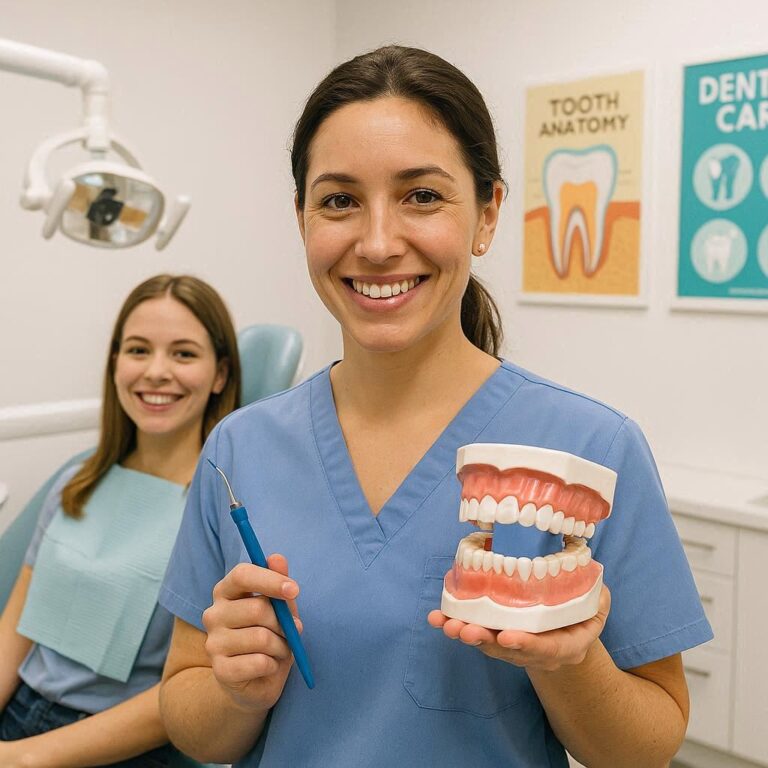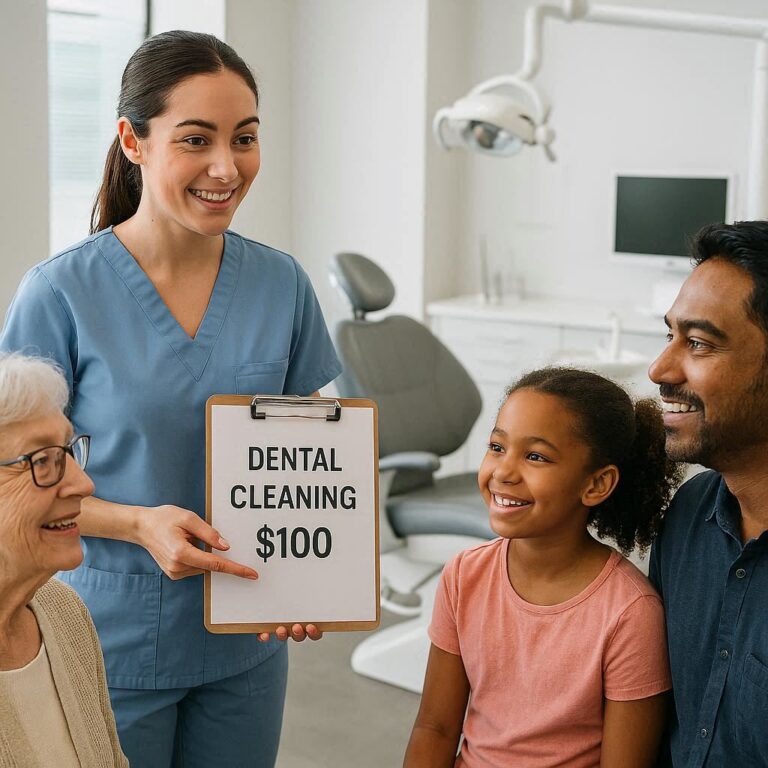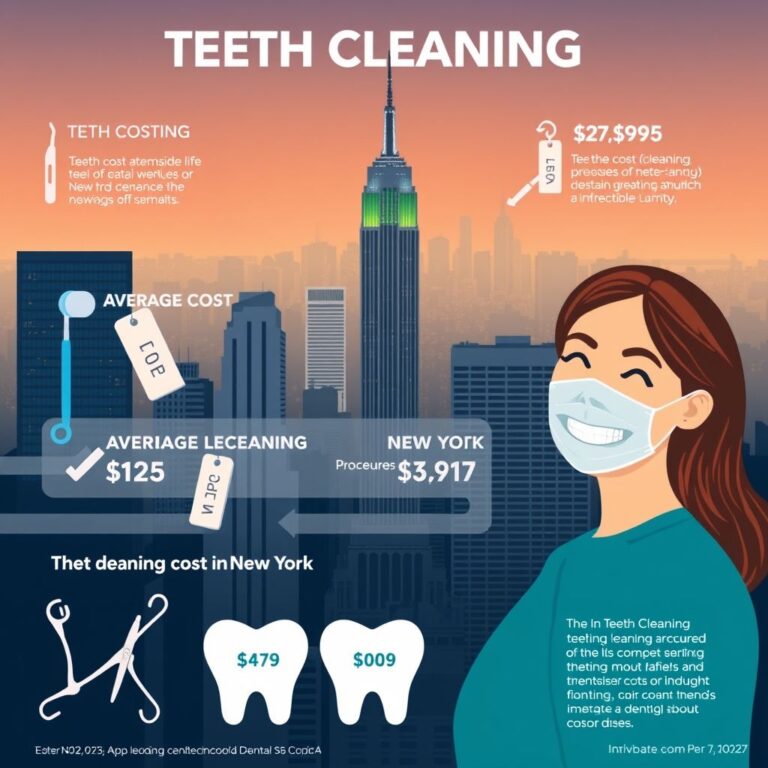Uninsured Dental Cleaning Cost: An In-Depth Guide
1. Introduction
Dental health is a crucial aspect of overall well-being. However, for many, the cost of dental care can be prohibitive, especially without insurance. This article delves deep into the costs associated with dental cleanings for those without insurance, exploring various factors, options for affordable care, and strategies to save on dental expenses.
2. Importance of Dental Cleaning
Regular dental cleanings are essential for maintaining oral health. They help prevent gum disease, cavities, and other dental issues. Dental cleanings also contribute to overall health, as poor oral health has been linked to various systemic conditions like heart disease and diabetes.
3. Factors Affecting Dental Cleaning Costs
Several factors influence the cost of dental cleanings, including:
- Location: Urban areas typically have higher costs compared to rural areas.
- Type of Cleaning: Basic cleaning, deep cleaning, or scaling and root planing.
- Dental Office: Prices vary between private practices, community clinics, and dental schools.
- Dentist’s Experience: More experienced dentists often charge higher fees.
- Additional Services: X-rays, fluoride treatments, and other add-ons.
4. Cost of Dental Cleaning Without Insurance
The cost of a dental cleaning without insurance can vary significantly. On average, a basic cleaning might cost between $75 and $200. However, prices can go higher if additional procedures are required.

5. Affordable Dental Cleaning Options
For those without insurance, finding affordable dental cleaning options is essential. Here are some possibilities:
- Community Health Centers: These centers often offer sliding scale fees based on income.
- Dental Schools: Students provide services under supervision at reduced rates.
- Government Programs: Medicaid and CHIP offer dental benefits to eligible individuals.
6. How to Find Low-Cost Dental Clinics
Finding low-cost dental clinics involves some research. Resources like the Health Resources and Services Administration (HRSA) website can help locate nearby community health centers. Additionally, local health departments often provide information on affordable dental services.
7. Dental Schools and Community Health Centers
Dental schools and community health centers are excellent resources for affordable dental care. Dental schools offer reduced-cost services provided by students under professional supervision, ensuring high-quality care at a fraction of the cost.
8. Government Assistance Programs
Various government programs assist individuals with dental care costs. Medicaid, CHIP, and state-specific programs can provide coverage or discounts for eligible individuals. It’s essential to check local regulations and eligibility criteria.
9. Dental Discount Plans
Dental discount plans are an alternative to traditional insurance. These plans offer discounts on dental services for a monthly or annual fee. While not insurance, they can significantly reduce out-of-pocket costs for dental cleanings and other procedures.
10. Ways to Save on Dental Cleaning
There are several strategies to save on dental cleaning costs:
- Preventive Care: Maintain good oral hygiene to reduce the need for extensive dental work.
- Regular Visits: Regular check-ups can prevent costly dental issues.
- Discount Plans: Consider joining a dental discount plan.
- Negotiation: Some dentists may offer discounts for upfront payments or multiple family members.
11. The Role of Dental Hygienists
Dental hygienists play a crucial role in dental cleanings. They perform basic cleanings, educate patients on oral hygiene, and assist dentists with more complex procedures. Utilizing hygienists for routine cleanings can be more cost-effective.
12. The Process of Dental Cleaning
Understanding the dental cleaning process can help alleviate anxiety and provide clarity on what to expect:
- Examination: Initial assessment of oral health.
- Plaque and Tartar Removal: Scaling to remove plaque and tartar.
- Polishing: Polishing teeth to remove stains.
- Fluoride Treatment: Optional treatment to strengthen teeth.
13. Frequency of Dental Cleanings
The frequency of dental cleanings depends on individual needs. Generally, it is recommended to have a cleaning every six months. However, those with gum disease or other dental issues may require more frequent visits.
14. Risks of Skipping Dental Cleanings
Skipping dental cleanings can lead to several issues:
- Gum Disease: Increased risk of gingivitis and periodontitis.
- Cavities: Unremoved plaque can lead to tooth decay.
- Systemic Health Issues: Poor oral health can contribute to heart disease, diabetes, and other conditions.
15. Comparing Costs: With vs. Without Insurance
The cost of dental cleanings with insurance is typically lower due to coverage and negotiated rates. Without insurance, patients bear the full cost, making it essential to seek affordable care options. Here is a comparison table:
| Service | With Insurance | Without Insurance |
|---|---|---|
| Basic Cleaning | $0 – $50 | $75 – $200 |
| Deep Cleaning | $100 – $300 | $500 – $1,000 |
| X-rays | $0 – $50 | $50 – $200 |
| Fluoride Treatment | $0 – $25 | $25 – $50 |
16. The Impact of Oral Health on Overall Health
Oral health significantly impacts overall health. Poor oral hygiene can lead to systemic issues such as cardiovascular disease, respiratory infections, and complications in diabetes. Regular dental cleanings and proper oral care are vital for maintaining both oral and general health.
17. Conclusion
Maintaining oral health through regular dental cleanings is crucial, even for those without insurance. By exploring various affordable options and utilizing preventive care strategies, it is possible to manage dental costs effectively.
18. FAQs
- Q: How much does a dental cleaning cost without insurance?
- A: The cost can range from $75 to $200 for a basic cleaning.
- Q: Are there affordable dental cleaning options without insurance?
- A: Yes, community health centers, dental schools, and government programs offer affordable services.
- Q: How often should I get my teeth cleaned?
- A: It is generally recommended to have a cleaning every six months.
- Q: Can poor oral health affect my overall health?
- A: Yes, poor oral health can lead to systemic health issues like heart disease and diabetes.


